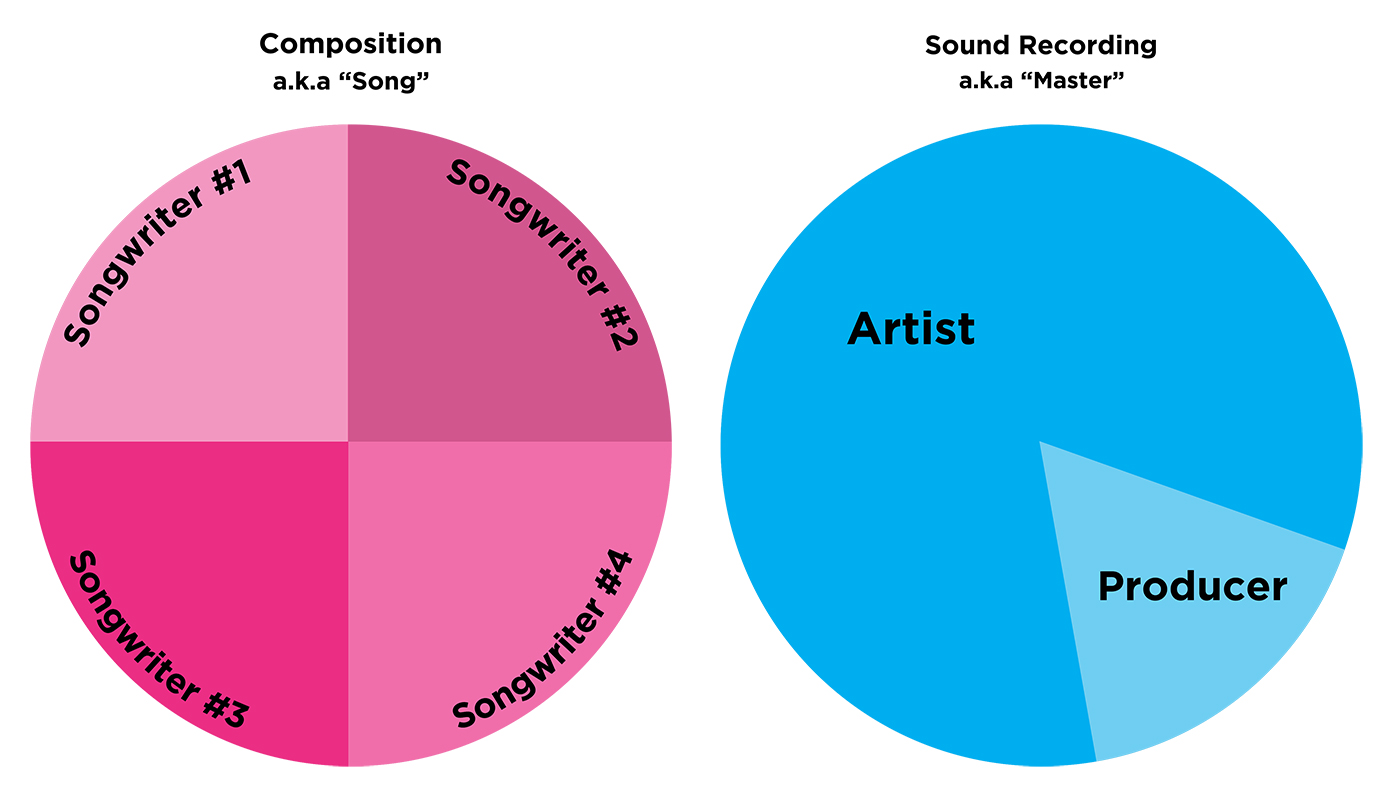A music producer typically costs between $500 to $5,000 per track, depending on experience and reputation. Different producers offer various pricing structures and packages to accommodate different budgets.
Hiring a music producer is a crucial decision that can significantly impact the quality and success of your music project. It involves finding the right fit based on your musical style, goals, and budget. Music producers help artists bring their musical vision to life by providing expertise in recording, arranging, mixing, and mastering.
The cost of hiring a music producer is influenced by factors such as the producer’s industry experience, credits, and level of involvement in the project. By understanding your needs and budget, you can select a music producer who aligns with your artistic vision and financial resources.

Credit: aristake.com
Factors Affecting Music Producer Costs
Factors Affecting Music Producer Costs:
Experience And Reputation
Experienced music producers with a stellar reputation may command higher fees.
Location And Studio Facilities
Producer fees can vary based on the region and the quality of studio facilities.
Scope Of Work
Complex projects may incur higher costs depending on the extent of work involved.
Average Cost Range For Music Producers
When hiring a music producer, understanding the average cost range can help you budget effectively. Below, we break down the pricing tiers for music producers, ranging from entry-level to top-tier options.
Entry Level Producers
Entry-level music producers typically charge $100-$500 per song or project. These producers are perfect for beginners or those working on smaller scale projects.
Mid-level Producers
Mid-level music producers fall within the $500-$2,000 range per song or project. They offer a more professional touch and often have more experience in the industry.
Top-tier Producers
For top-tier music producers with extensive experience and a proven track record, prices can range from $2,000 upwards per song or project. These producers are sought after for their expertise and ability to deliver high-quality results.
Additional Expenses To Consider
When hiring a music producer, it’s essential to consider the associated expenses beyond the producer’s fee. Apart from the standard cost of hiring a music producer, there are additional expenses that may impact your overall budget. These additional expenses include studio rental and equipment costs, licensing and royalties.
Studio Rental And Equipment Costs
Studio rental and equipment costs can significantly impact the total expenses of hiring a music producer. Many music producers work in professional recording studios, which typically charge an hourly or daily rate for their space. In addition to the rental fee, there may be additional charges for access to specialized equipment and instruments. Be sure to inquire about any extra costs associated with studio rental and equipment usage prior to booking a recording session.
Licensing And Royalties
When hiring a music producer, it’s crucial to consider the potential licensing and royalty expenses. Depending on the scope of the project, there may be costs associated with obtaining licenses for copyrighted material or paying royalties for the use of pre-existing compositions. The complexity of licensing and royalty requirements varies based on the specific needs of the project, so it’s important to discuss these potential expenses with the music producer early in the collaboration process.

Credit: www.newyorker.com
Negotiating The Best Deal
When it comes to hiring a music producer, negotiating the best deal is crucial to ensure that you are getting the most value for your investment. The cost of hiring a music producer can vary depending on factors such as their level of experience, reputation, and the scope of the project. To negotiate the best deal, there are a few key factors to consider.
Clear Communication Of Expectations
A clear and open line of communication is essential in negotiating the best deal with a music producer. Clearly communicate your expectations and goals for the project to the producer, ensuring that both parties are on the same page. By discussing the desired outcomes and deliverables upfront, you can avoid any misunderstandings or miscommunications down the line.
Key Points:
- Clearly communicate your expectations and goals for the project.
- Discuss desired outcomes and deliverables upfront.
- Avoid any misunderstandings or miscommunications down the line.
Flexibility In Services And Budget
To negotiate the best deal, it’s important to consider the flexibility of both the music producer’s services and your budget. Discuss the various services and packages offered by the producer and see if they can be customized to meet your specific needs. Additionally, be open and transparent about your budget constraints. A good music producer will work with you to find a solution that fits your budget while still delivering high-quality results.
Key Points:
- Consider the flexibility of services and packages offered by the producer.
- Be open and transparent about your budget constraints.
- Work together to find a solution that fits your budget and delivers high-quality results.
By focusing on clear communication of expectations and flexibility in services and budget, you can negotiate the best deal when hiring a music producer. Remember that a successful negotiation is one that brings value to both parties and ensures a positive outcome for all involved.
Ensuring Quality Within Budget
Hiring a music producer can cost anywhere from several hundred to thousands of dollars. However, quality doesn’t have to be sacrificed to fit within a budget. It’s important to research and set a realistic budget to hire a music producer without compromising on quality.
Reviewing Producer Portfolios
When hiring a music producer for your project, it’s important to review their portfolios to ensure that their style and experience align with your vision. A producer’s portfolio acts as a window into their skills and creativity. Take the time to listen to their past projects, paying attention to the quality of production, sound design, and overall aesthetics.
By reviewing producer portfolios, you can gain insights into their ability to enhance your music and make it stand out. Look for diversity in their work, as this demonstrates their versatility and adaptability across different genres and styles. It’s also crucial to listen for moments of innovation and originality, as these are qualities that can take your music to the next level.
Understanding Contract Terms
Before finalizing your decision and signing any contracts, it’s essential to thoroughly understand the terms and conditions laid out by the music producer. This step ensures transparency and helps prevent any misunderstandings or disputes later on.
Review the contract carefully, paying close attention to the scope of work, project timeline, and payment structure. Ensure that all deliverables and milestones are clearly defined, so both parties have a clear understanding of what is expected. It’s also crucial to clarify ownership and rights to the music produced.
If you’re uncertain about any clauses or contractual obligations, don’t hesitate to seek legal advice. An attorney can help protect your interests and ensure that the contract is fair and mutually beneficial.
Setting A Realistic Budget
When it comes to hiring a music producer, setting a realistic budget is crucial. It helps you strike a balance between quality and financial feasibility. While working with a limited budget, it’s important not to compromise on the quality of production.
Research the current market rates for music producers to gain an understanding of the industry average. Consider factors such as the producer’s reputation, experience, and level of expertise, as these can influence the cost. Keep in mind that hiring a renowned and highly sought-after producer may require a larger budget.
However, there are talented up-and-coming producers who offer excellent services at more affordable rates. Don’t overlook them based solely on their lack of fame. Remember to negotiate the fee if you believe it is necessary, but always be respectful and considerate of the producer’s time and expertise.
To ensure quality within budget, consider prioritizing areas that have the most significant impact on the final product. Allocate funds accordingly, focusing on essential aspects such as recording quality, mixing, and mastering. This way, you can create a polished and professional track while making the most of your allocated budget.
In conclusion, by carefully reviewing producer portfolios, understanding contract terms, and setting a realistic budget, you can ensure quality while hiring a music producer. Investing time and effort into these areas will contribute to a successful collaboration, resulting in music that exceeds your expectations.

Credit: www.backstage.com
Frequently Asked Questions Of How Much Does It Cost To Hire A Music Producer
How Much Does It Cost To Hire A Music Producer?
Hiring a music producer can vary depending on various factors such as the producer’s experience, reputation, and the scope of your project. On average, you can expect to pay anywhere from $500 to $5,000 per song. Keep in mind that this is just a general estimate, and prices can differ greatly depending on the producer and your specific requirements.
Conclusion
Hiring a music producer can be a significant investment for musicians. The cost varies depending on the producer’s experience, equipment, and services. It’s essential to consider your budget and the value the producer brings to your project. Ultimately, finding the right producer for your music is invaluable to creating a high-quality and successful end product.